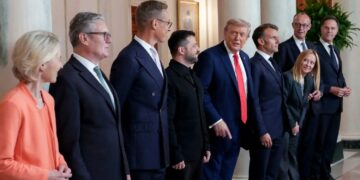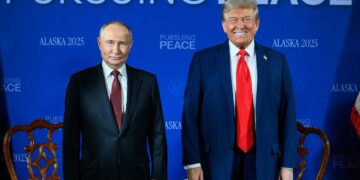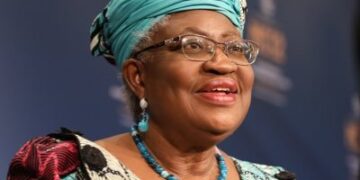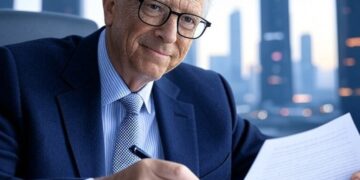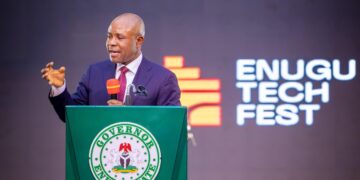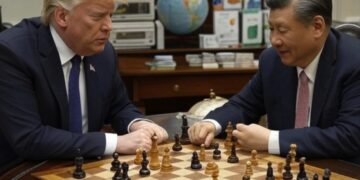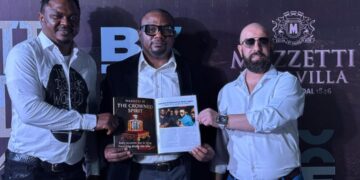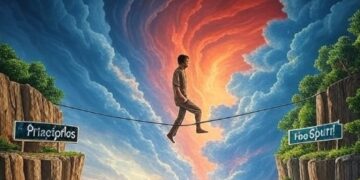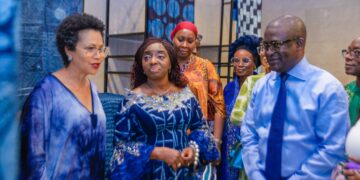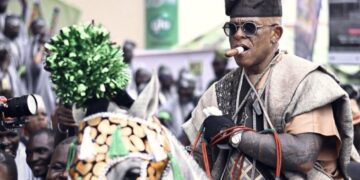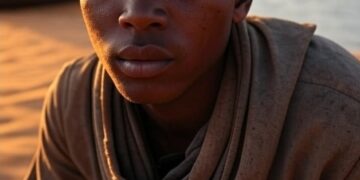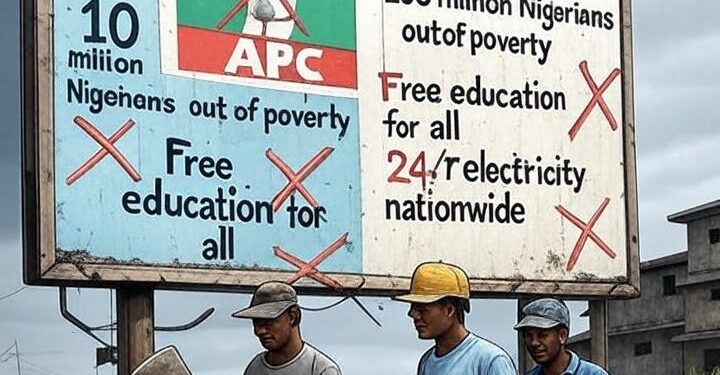David Hundeyin’s story embodies this anger. “I was supposed to spend my 20s flying AW139s over the Niger Delta, having babies, building my dream home in Lagos,” he writes. Instead, the collapse of Atlantic Aviation, tied to the APC’s economic mismanagement, forced him into journalism. His friends either fled Nigeria or died, and now, in his 30s, he’s in exile, raging against an “American-backed pestilence” of the APC and its enablers. His words burn: “The Nigerian human being’s inherent lack of ability to self-reflect or have any sort of basic self-awareness is what will finally kill us all as a country. We will go extinct.”
Hundeyin’s fury deepens with memory. In 2012, living in Bradford, he drove to Manchester for a Standard Chartered Nigeria interview—a glimpse of a Nigeria that once drew talent home. “This was 2012. 5 minutes ago,” he fumes. “Yet today, it sounds absurd.” While his Chinese peers thrive globally, Nigerian talent is exploited for $500 a month—less than his 2014 cadet pilot allowance of $1,200. “It’s the most frustrating thing in the world,” he writes, decrying Nigerians’ “information asymmetry” that blinds them to their decline, even as they “vote for the real-life Col. H. Stinkmeaner from Daura” to destroy their prosperity.
Biggest Mack’s rage mirrors this. “I should have been married with three kids by now,” he says. In 2011, he paid rent with one month’s salary. But the APC’s rise, fueled by deceptive campaigns like Occupy Nigeria—which he unwittingly amplified—brought chaos. “Since 2015, I haven’t stabilized,” he seethes. “You can never out-grind a failing economy, unless you’re criminally minded.”
The data is merciless. In 2011, Nigeria’s GDP growth was 7%, and the naira was stable. By 2025, under APC rule, inflation exceeds 30%, unemployment tops 40%, and the naira’s collapse has made necessities unattainable. Nigeria, once a MINT economic star alongside Mexico, Indonesia, and Turkey, has crashed from a $568 billion economy in 2015 to $199 billion today. As those nations hit trillion-dollar status, Nigeria lost its talent to Canada, Germany, and Britain. Hundeyin’s outrage explodes: “These fuckers STILL don’t realise what happened in 2015 and who was behind it!”
Dr. Kelechi Ugonna fuels the fire. “During former President Olusegun Obasanjo and Goodluck Ebele Jonathan ’s time, Nigeria-based companies recruited Nigerians in Europe and the US—on-the-spot offers, free flights, excellent conditions,” she writes. “The fall was intentional.” She accuses Muhammadu Buhari of reversing every gain, reintroducing Fulani terrorism, and setting Nigeria back decades with help from evil, greedy politicians and the Lagos-Ibadan media axis. “The West destroyed the hope of the Black man in Nigeria,” she charges, “and Buhari did so very well.”
Ohijeme’s anger is unrelenting. “We are all angry,” he declares, rejecting calls to honor the dead. “How dare they tell us not to speak ill of a man who failed in governance, vindictive and wicked, with no milk of kindness?” The APC’s legacy, he argues, is a nation stripped of compassion, where elites thrive as the masses bleed. Yinkzworld contrasts the grief for Yar’Adua with disdain for Buhari: “People’s reactions tell you everything.” The APC’s rise, built on greed and ignorance, ignored elders’ warnings, leaving Nigeria “red” with suffering.
This collective fury—Hundeyin’s lost career, Biggest Mack’s instability, Ugonna’s historical clarity, Ohijeme’s moral outrage—defines a generation robbed. The free press is silenced, protest songs are banned, and dreams of flying helicopters or paying rent are now survival struggles. Hundeyin vows, “I will never forgive, and I will never forget.” Biggest Mack echoes, “There’s no forgiveness, even if it’s the last thing I do.” Ohijeme adds, “We have all the right to be angry, and angry we are!”
Stakeholders—policymakers, business leaders, civil society—must heed this fury. The APC’s decade of deception has crushed a generation, replacing hope with rage. Nigeria’s youth demand accountability, their voices a growing roar. Policymakers must stabilize the economy, curb inflation, strengthen the naira, and create jobs to stem the brain drain. Business leaders must champion opportunity, not exploitation. Civil society must defend civic space, ensuring young Nigerians can speak freely.
Inaction risks catastrophe. This anger isn’t rhetoric—it’s a revolution brewing. “We won’t wait another decade,” Hundeyin warns. Stakeholders must rebuild trust and opportunity, or Nigeria faces not just economic collapse but extinction as a nation with a future. The elite must answer for a generation’s crushed lives. Will they act before the fury ignites?





